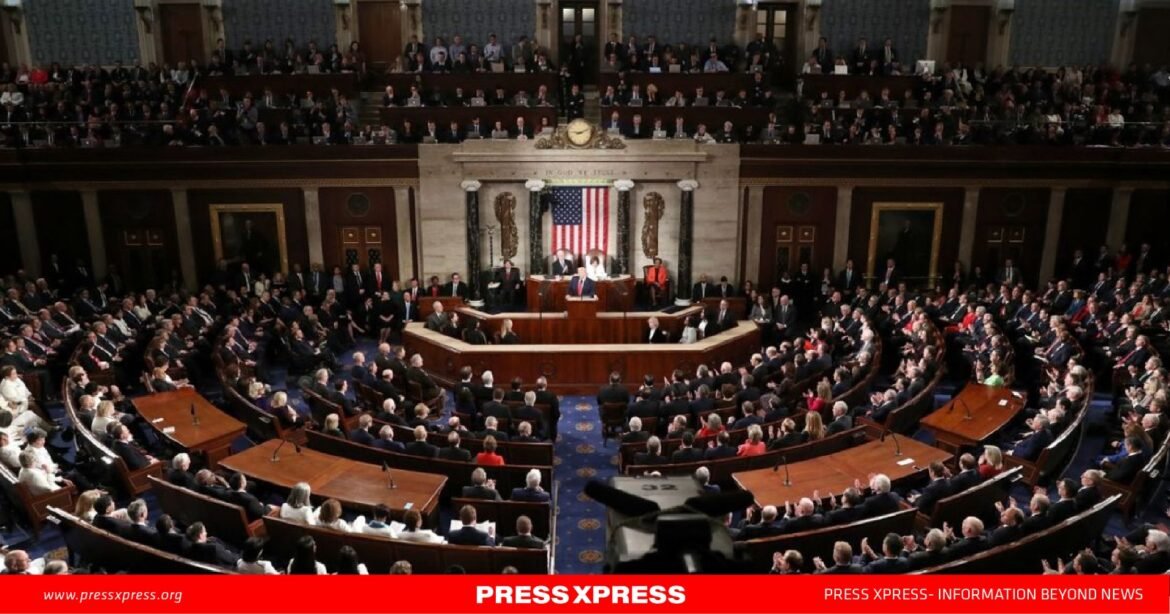- Senate Democrats push to confirm Biden’s judicial nominees before Jan. 20
- Biden has appointed 214 judges; 31 more nominees await confirmation
- Trump made 234 judicial appointments in his first term
With Republican Donald Trump set to assume office on Jan. 20, Senate Democrats are moving swiftly to confirm as many of President Joe Biden’s judicial nominees as possible to prevent vacancies that Trump’s incoming administration could fill. Republicans will take control of the Senate on Jan. 3, adding urgency to the Democrats’ efforts.
On Tuesday, the Senate voted 51-44 to confirm one of Biden’s judicial nominees, former prosecutor April Perry, to a U.S. district court position in Illinois. This was the first judicial confirmation vote since Trump’s Nov. 5 election victory. Currently, 30 more Biden nominees are pending Senate confirmation, with 16 awaiting a full Senate vote and 14 under Judiciary Committee review.
The Senate has the constitutional responsibility to confirm federal judicial nominees, granting them lifetime appointments. Senate Majority Leader Chuck Schumer stated, “We are going to get as many done as possible.”
Judicial Legacy and Ideological Shifts
During his first term, Trump appointed 234 judges, significantly shifting the judiciary rightward, including establishing a 6-3 conservative majority on the Supreme Court with three appointees. These appointments have been pivotal in key conservative rulings, including expanding gun rights, restricting abortion access, and curbing federal regulatory powers. Biden, in contrast, has worked to diversify the bench with judges of various backgrounds. About two-thirds of his 214 confirmed nominees are women, and a similar proportion are racial minorities. His landmark appointments include liberal Supreme Court Justice Ketanji Brown Jackson, representing a significant shift toward a more inclusive federal judiciary.
Despite Biden’s gains, pressure remains on Senate Democrats to complete outstanding confirmations. Trump recently urged Senate Republicans to oppose any further Biden confirmations, stating, “Democrats are looking to ram through their Judges.” This sentiment is echoed by Trump allies, such as Elon Musk, and judicial advocacy groups, calling for a halt to Biden’s “activist” nominees, whom they consider “bad for the country.”
Future Nominations and Challenges Ahead
Biden’s recent nomination of Tali Farhadian Weinstein, a former candidate for Manhattan district attorney, to a federal judgeship in New York highlights his intention to continue appointing judges in his remaining weeks in office. However, time constraints and upcoming legislation, such as the essential government spending bill, could limit Senate resources for confirmations. Additionally, with a slim 51-49 majority, Democrats cannot afford defections if Republicans unanimously oppose Biden’s nominees. West Virginia Senator Joe Manchin, who caucuses with the Democrats, has declared he will only support nominees who secure at least one Republican vote.
Several influential appeals court nominees are also awaiting confirmation, including Adeel Mangi, who would become the first Muslim federal appellate judge, and Ryan Park, North Carolina’s Solicitor General. Republicans have signaled they may block both nominations, intensifying the confirmation struggle as Democrats race to solidify Biden’s judicial legacy.


